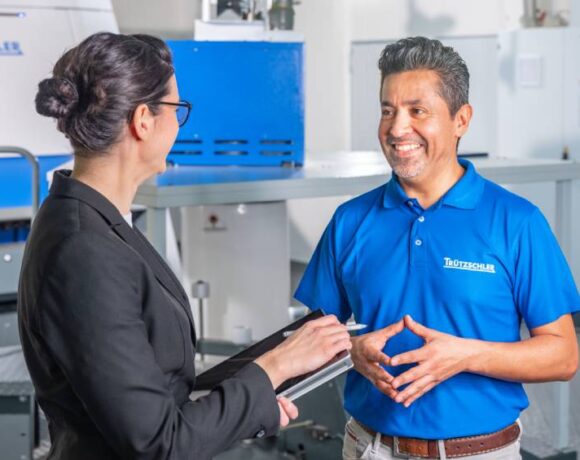The Global Trend Towards Sustainability Has Been A Significant Driver Of Our Business Decisions: Akhil Malhotra

In an exclusive interview with Textile Insights, Akhil Malhotra, CMD of Rudra Ecovation, shares Rudra’s journey from recycling PET bottles to producing sustainable textiles, influenced by global sustainability trends. Malhotra outlines Rudra’s strategies to overcome textile industry challenges while prioritizing sustainability.
Can you share the journey of how you started your recycling business and shifted the focus towards sustainability?
Our journey began around 2009-2010 with a vision to create a value-added chain within our business, where we could efficiently utilize resources and minimize logistic costs. The idea was simple: to take PET bottles as raw material and transform them into end products like fabric, carpet or technical textiles. Over the years, we gradually implemented this concept, and today, after about a decade of dedicated efforts, we have successfully established a vertically and horizontally integrated operation. Our raw material remains PET bottles, while our end products include fabric, carpets and technical textile fabrics. Initially, our approach was to produce items of comparable quality to virgin products but made from recycled materials. However, in recent years, there has been a global shift towards sustainability, with people becoming more conscious of their environmental impact. This shift has prompted us to openly promote our products as sustainable rather than trying to quietly match the quality of virgin products.
How has the global trend towards sustainability influenced your business decisions, particularly regarding product development and marketing?
The global trend towards sustainability has been a significant driver of our business decisions. We’ve observed a growing demand for sustainable products, driven by increasing awareness and a sense of responsibility among consumers worldwide. Major brands like IKEA, H&M, Zara and Reebok are committing to sustainability goals, with some aiming to become 100% sustainable within the next few years. This shift in consumer preferences has encouraged us to launch new products like “Anaura,” which we proudly promote as 100% sustainable and circular. We aim to capitalize on this growing demand for sustainable products by offering consumers the opportunity to wear and enjoy fashion while feeling proud of their eco-friendly choices.
The awareness of sustainability is high in regions like the USA and Europe. How do you see the Indian market evolving in terms of sustainability and its impact on the textile industry?
The awareness of sustainability in India is also growing. There has been significant progress in recent years. Under the visionary leadership of Prime Minister Narendra Modi and initiatives from the Indian government, awareness campaigns and platforms like Bharat Tex for the textile industry, Indian consumers are becoming increasingly aware of the importance of sustainability. With India being one of the fastest-growing economies globally, there is immense potential for the textile industry to embrace sustainability fully. As our economy grows and per capita income increases, the affordability of sustainable garments becomes less of a concern. I see a bright future for the Indian textile market, with sustainability playing a central role in its growth and development.
What challenges do you anticipate for the textile industry in the near future, particularly concerning sustainability, and how do you plan to address them?
One of the significant challenges facing the textile industry, particularly in the context of sustainability, is competition from imports, especially those from countries like China. Undervalued imports and incorrect categorization of products pose a threat to domestic manufacturers. However, we have brought this issue to the attention of the government and concerned authorities to address these issues and ensure a level playing field for all. Additionally, technological advancements and innovations will continue to drive the industry forward, allowing us to further improve the sustainability of our processes and products. By staying proactive, adapting to market trends, and prioritizing sustainability, we aim to overcome these challenges and contribute to a more environmentally conscious and responsible textile industry.














